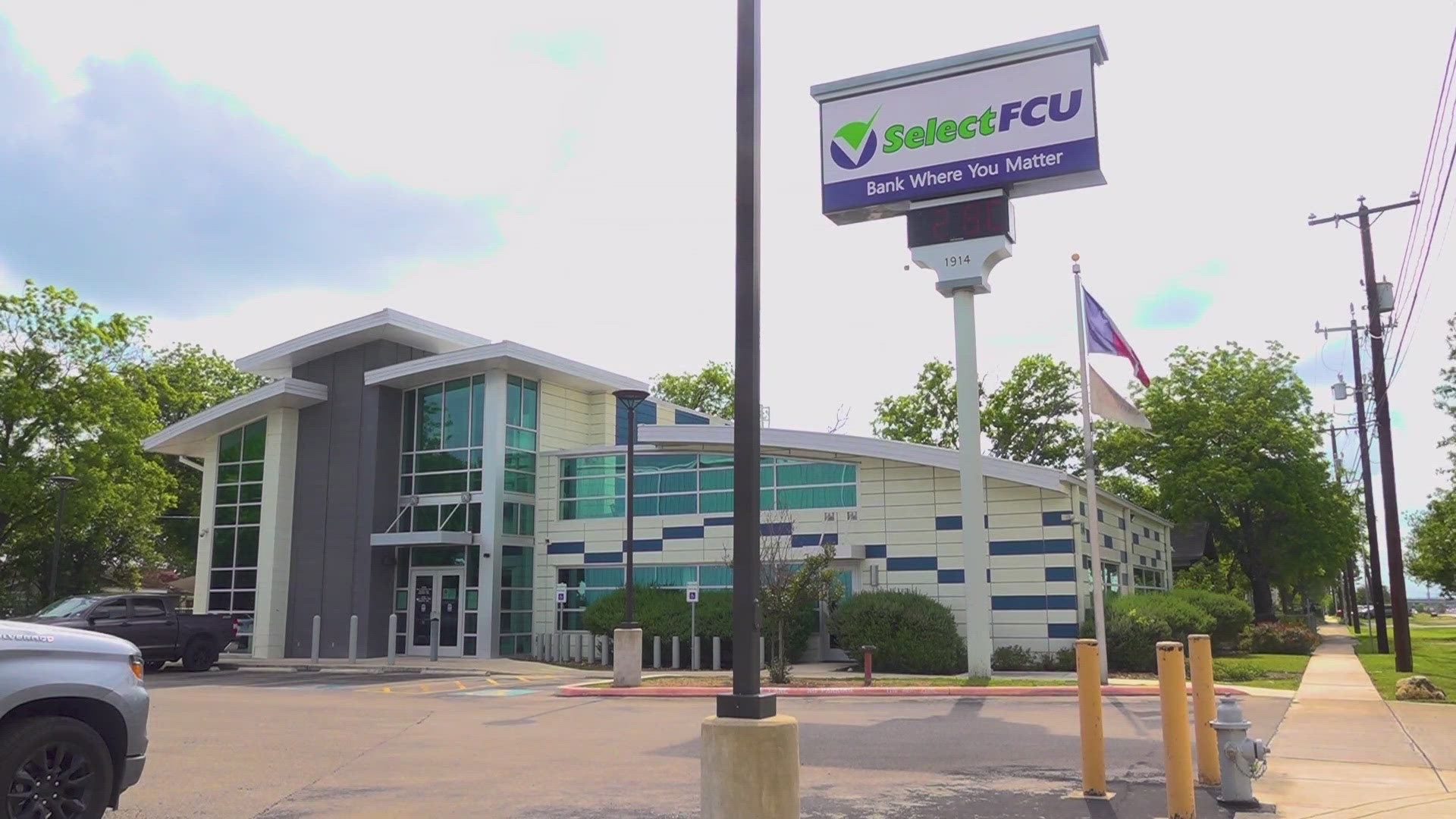SAN ANTONIO — Clara Rodriguez is still trying to get the rest of her money back after thieves pulled nearly $1700 out of her account at an ATM.
Initially the bank reimbursed only $1410 of that money. KENS 5 spoke to a financial fraud expert to find out what protections you have under the law.
Rodriguez said she got a call from her bank, SelectFCU, on Feb. 2 and was notified about suspicious transactions across town. She said she immediately told the bank it was fraud and started putting together a police report.
After showing up at the bank, Rodriguez learned the thieves got away with $1,685.75 and there was only $18 left in her account. She believes the thieves somehow copied her debit card information.
Rodriguez told KENS 5 that SelectFCU did start an investigation but it took a while.
"I went to the credit union and I went to the police department. It took them a month and a half to respond to me," Rodriguez said. "I told them, if nothing is resolved by Good Friday then I'm going to go to KENS."
On Apr. 2, SelectFCU reimbursed Rodriguez $1410 for the ATM fraud. Rodriguez said the bank kept the rest but did not give her a written explanation why.
But is a bank required to fully reimburse a customer after this kind of fraud?
Financial fraud Attorney Daniel Schlanger later told KENS 5 there are circumstances with debit card fraud where the bank is supposed to give almost all the money back under the Electronic Funds Transfer Act (EFTA).
"It's a federal law. It requires banks and other institutions to be the backstop for unauthorized charges on consumer accounts, subject to certain limitations," Schlanger said.
Schlanger told KENS 5 it is important to determine how quickly the customer notifies their bank after learning about the fraud.
If the customer notifies the bank about debit card fraud within two days of learning about it, Schlanger said the bank would need to return all the money minus a $50 "carve out" that the bank is entitled to.
If the customer notified the bank after those two days, he said the bank can keep a $500 "carve out" but must return the rest of the money minus that $500.
If the customer does not check their statements for a long period of time and only finds out about fraud several months after the case, the act may no longer apply.
This means, if a customer lost $2000 to debit card fraud, they would be entitled to get $1950 back if they reported it within two days of finding out or to $1500 if they reported it after those two days.
Schlanger said, to legally notify the bank, the customer needs to give the bank enough information to determine what account was involved and what charges where involved. He said a phone call would be sufficient but notifying the bank in writing is better when possible.
Additionally, Schlanger said these protections can extend to other kinds of fraud such as when a scammer convinces a consumer to give them personal information which is then used to steal the customers money.
"If you are tricked into providing your access information to a fraudster...you would still be protected (because it was unauthorized). However, if you just send money to someone that you should not have sent money to, that is not protected because it was not unauthorized," Schlanger said.
If the bank refuses to reimburse some or all of that money, Schlanger said the customer is also entitled to a written explanation of the bank's decision.
"The law requires an explanation of the denial," Schlanger said. "For example, 'we are rejecting you because your dispute was untimely,' or 'because we have substantial evidence that it was actually you at the ATM machine.' They are required under the EFTA to provide the decision and reason for the decision in writing."
Schlanger said the EFTA even allows the consumer to ask the bank for a copy of the documents the bank relied on in making a decision.
Finally, if the bank does not comply with the EFTA, Schlanger said a customer can file a complaint with the Consumer Financial Protection Bureau.
KENS 5 emailed SelectFCU multiple times, and even visited the bank in person, to ask if Rodriguez would be reimbursed additional money. SelectFCU would only send KENS 5 a response via email stating, "This matter has been forwarded to our legal counsel; no further response can be given from SelectFCU at this time."
Rodriguez said she and her husband live on retirement, and can't afford to just lose around $200, so she will be filing a complaint.
If you have a problem like this, we want to help you fix it! In our series, Call KENS, we do our best to solve problems for our viewers. The number to call is 210-470-KENS, or fill out the form on this page.

